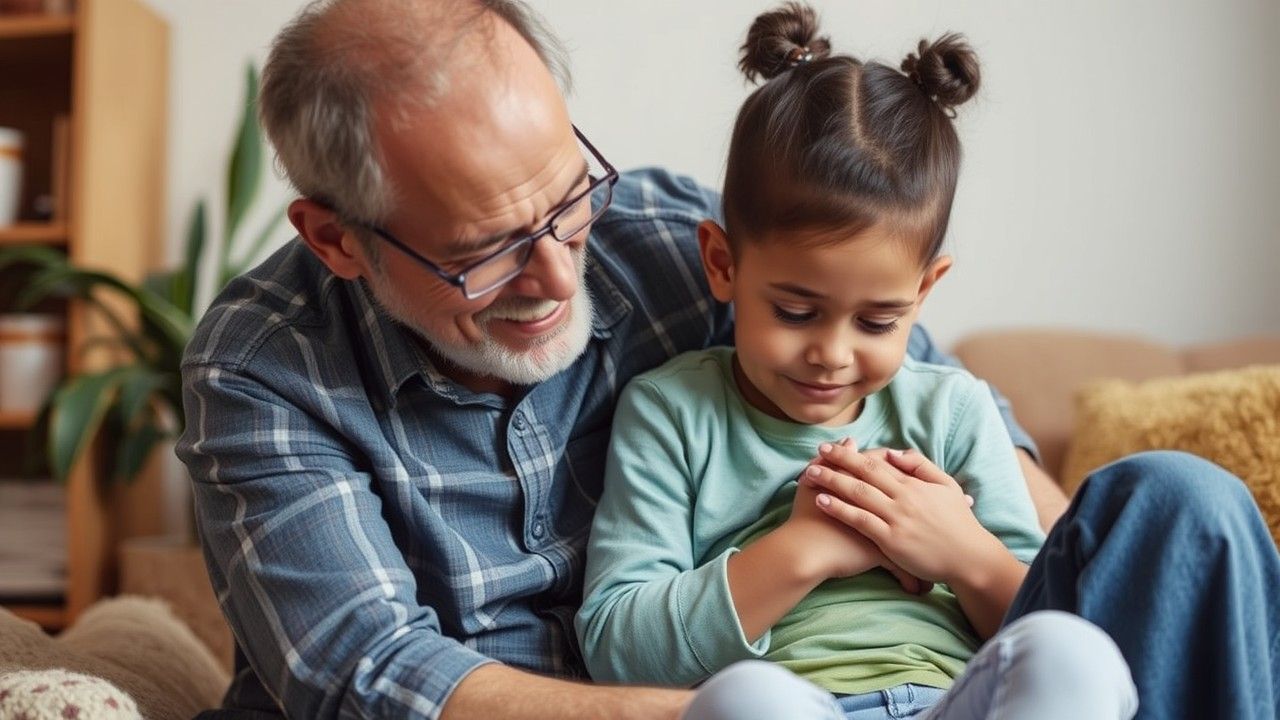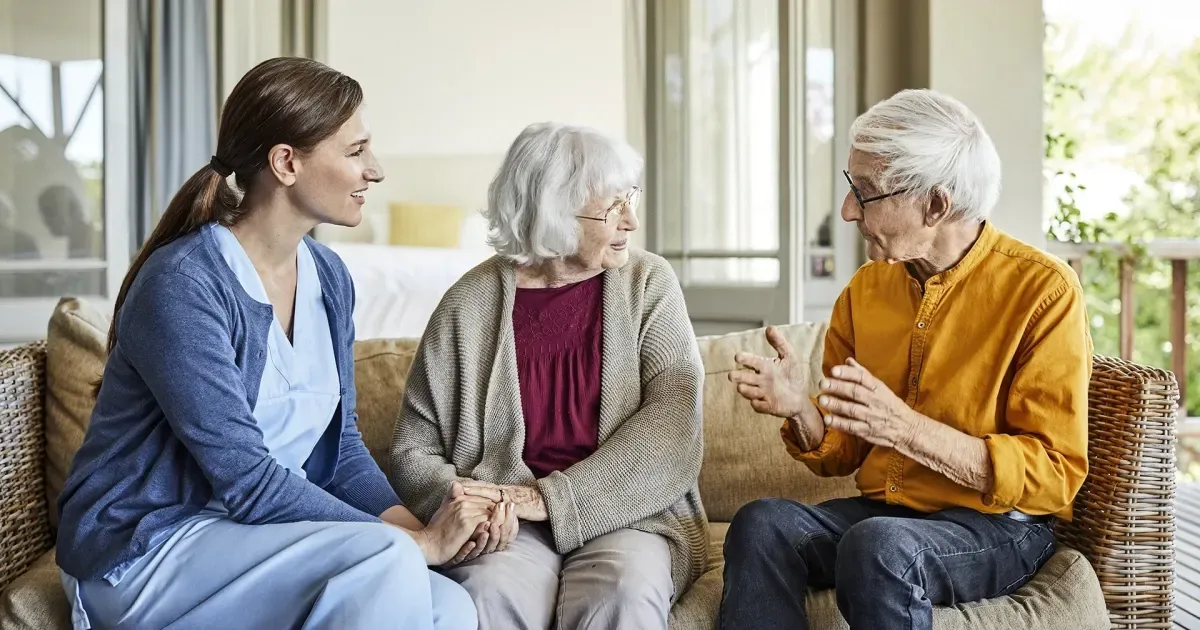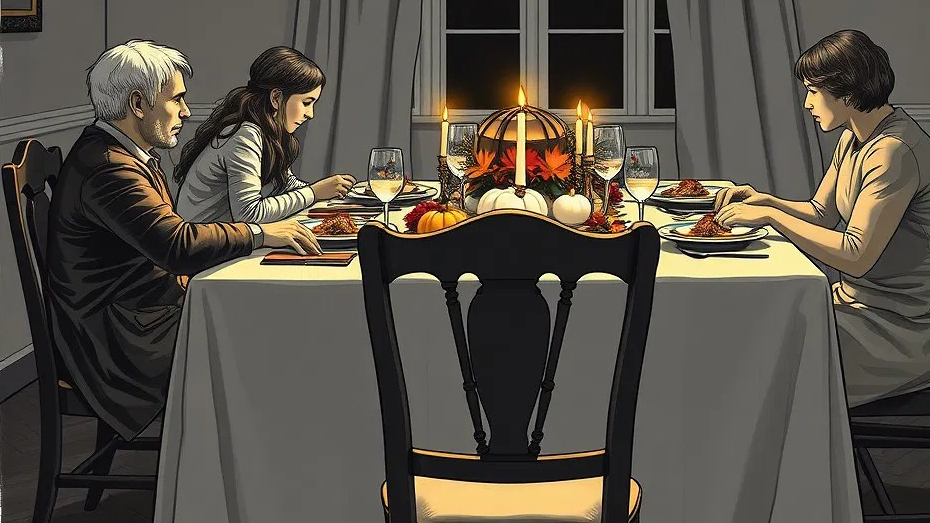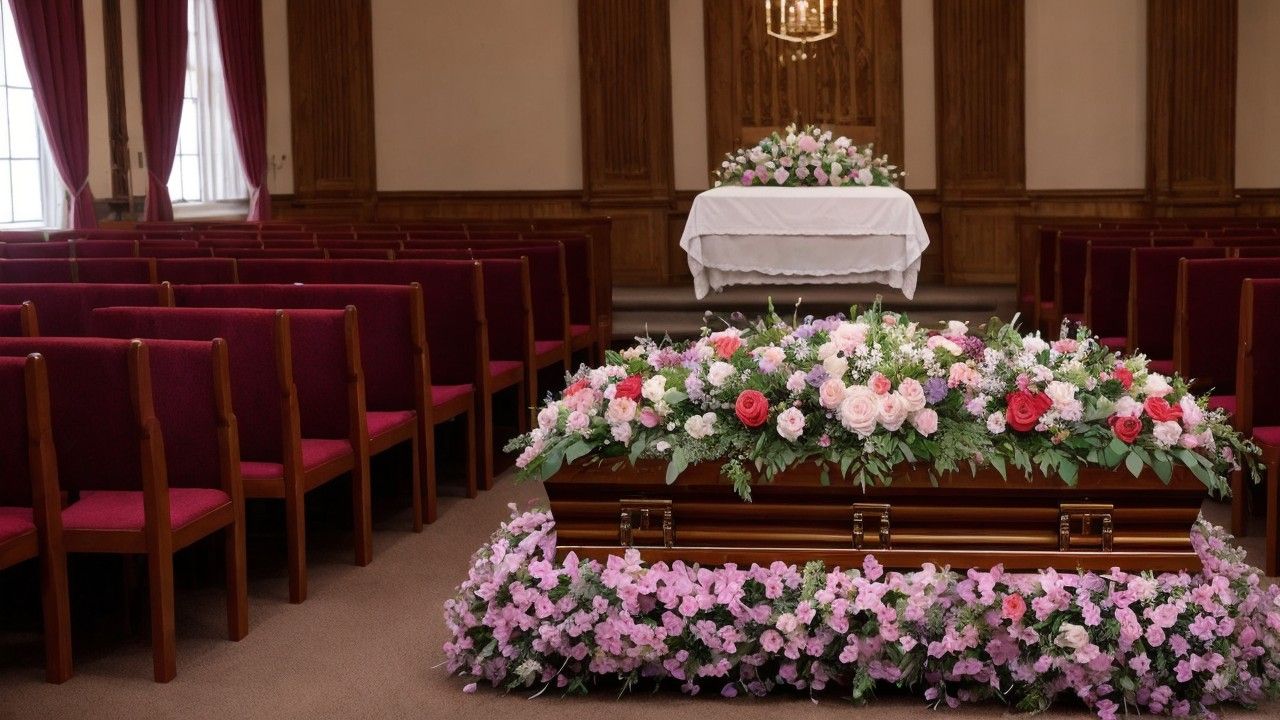Find a Trusted Proivder
Helpful Links

Business Hours
- Mon - Fri
- -
- Sat - Sun
- Closed

Share This Article
“Your husband is in pretty bad shape. I'm afraid he might not make it through the day.”
The doctor’s words rang like a cruel death sentence, which, in essence, they actually were. None of the many “I'm sorrys” and there's nothing more “we can dos” did much to suppress the impact those words left on Madeline Rowe.
How long has it been since the nightmare began? Two? Three years? In all that time, she had done everything a young wife confronted by impending widowhood would do: she had maintained hope and resilience as she walked with her husband Karl through that dark, uncertain tunnel that was his journey with cancer. They had only been married five years with a toddler and infant before the unexpected diagnosis confronted them: Karl had soft tissue sarcoma. Stage 3.
In the beginning, it seemed like a manageable battle, something they'd fight together and win so they could go back to building their young lives. However, as Karl went from one radiotherapy session to the next, from one painful surgery after the next, she realized what a long, painful struggle it was going to be.
When the cancer spread to his vital organs and moved to stage 4, she remained hopeful because sometimes hope is all you have when faced with the imminent death of a loved one. Then came the day he was moved into the ICU because his body could no longer function on its own, and he needed those machines to stay alive.
She watched the man she had married waste away as the merciless disease ate at his being. She saw him die even before they referred to him as a body. She became helpless as grief, heavy and violent and ugly, overpowered her. She imagined herself as a young widow with two equally young children against the world, and she felt defeated under the weight of uncertainty.
The next few days were a blur as she went through the
funeral planning process like a routine. She booked him in a funeral home,
picked a casket, and
ordered flowers. She talked to a caterer who promised to feed those who would soon fill her home, called by loss.
When the minister, amidst—soulful music in the background—said something about ash to ash, she felt a piece of herself disappear inside that casket.
Over the next few weeks, as she sank deeper into the emptiness that was her life after burying her husband, the world seemed to stand still. Nothing made sense anymore. She locked herself in her bedroom most of the time, haunted by his absence.
Some days, she forgot to shower, and some days, she forgot to eat. Sleep deluded her, and on the rare times she slept, he filled her dreams. She forgot how to be a mother and wondered what to do with two helpless children who needed her.
How could she love them, protect them when she herself was useless on her two feet? How was she to be there for her children amidst all that unbearable loss? She wished she would sleep and not wake up.
Like A Rite Of Passage, We've All Been At Loss
Most of us have gone through a similar nightmare and can relate to Madeline's painful story. The unfairness of death is that it doesn't discriminate, often shattering our lives when we least expect it.
Some of us were widowed young when our happy days were just manifesting. Some of us have lost children when the joy of parenthood was at its peak. Some of us lost our beloved parents and not to old age. The sting of death always has the same numbing effect that takes years to heal.
For grieving people with children, fulfilling all your parental obligations amidst all that pain can be overwhelming. It can crash even the most resilient. We don't have the ultimate manual for handling grief, but to help you stay sane for the sake of your children, we have a few tips you might find helpful.
First, Understand The Nature of Grief
Grief constitutes those conflicting emotions: that feeling of helplessness, that unbearable pain, that deep void we feel after a loss.
Often, grief happens after death, but we've also
grieved lost relationships, the loss of good health, and even the loss of financial security. When we grieve, we experience sadness, despair, regret, anger, and confusion.
Grief has no timeline, and people react to it differently. Some stoically embrace the loss and live with it. Others take months or years to come to terms with it, and that's perfectly alright.
If you're a victim of loss, you deserve to express your pain in a way that works for you. You have the right to grieve as long as you want, and there's no pressure to get it over with. That said, these tips can help with coping when the going gets tough.
1. Allow Yourself To Be Helped
On the days when she couldn't do anything for herself, preferring to lie on her unmade bed for days, food, shower, and socializing were the last things on Madeline's mind. During those days, her family and a few friends took over the household, and she says were it not for them, she and her children wouldn't have survived.
“They literally took over the running of the house, babysitting the kids and breathing life to my broken self,” she says, reminiscing about the dark days after the funeral.
“I had such a reliable support system, something not many people are lucky to have.”
What's encouraging about Madeline's experience is that even though she was too lost in her grief, she realized how useless she was standing on her two feet. Thus, she allowed herself to be helped. This way, she didn't have to worry about post-funeral arrangements or the general running of the home until she was sane enough to face reality.
For parents experiencing loss, having others stand in the gap for us enables us to focus on the things that matter the most at that time: our well-being and that of our children.
For Madeline, it was her mother, siblings, a neighbor, and a couple of friends. For you, it can be a spouse taking the time off to handle the responsibilities around the home. Having them take full care of the children during such sensitive moments can be an emotional and psychological relief, allowing you to focus more on yourself.
It could also be friends offering to babysit, clean the home, plan and prepare meals, and more. Most people don't accept help because they feel they're inconveniencing others. This is a valid and natural feeling, as we often tend to own our problems, feeling like fighting our battles is our sole responsibility.
However, death is a universal tragedy and there's no heroism in coping with it alone. Since humans are inherently inclined to lend a hand when need be, the most you can do is allow them fulfill this natural desire to help. It doesn't make you a burden, it only means you're human. Allowing others to share in our darkness creates a meaningful bond that brings out the beauty in all of us.
2. Let Your Needs Be Known
When caught up in the throes of grief, we are not okay and will not even understand our needs. That's perfectly normal. Similarly, those who want to fill the gap may not know what is expected of them. They wouldn't know what to say or do, and some may be too considerate to ask. Often, they want to be helpful without saying or doing the wrong things.
Initially, you may not know what you need or where to start, but the responsibilities of bereavement will always present themselves. When what needs to be done becomes apparent, you can help yourself and your support system by communicating your needs:
- Ask for help with funeral planning
- Want pictures scanned for a slideshow? Get help with that.
- Looking for the perfect music to match the mood of the funeral, ask for referrals and contacts
- Need to get away after the funeral? Ask for help with the arrangements.
3. Let The Children Know
This may be the most challenging aspect of parenting while grieving, but it's also a crucial step. Children need to be told the truth, and discussing the reality of death with them is necessary. Of course, the conversation should be age-appropriate and handled wisely.
When grieving, the effects will be apparent, and the chances are that the children will witness it. Telling them what happened to the loved one and why they won't see them again helps them understand the reality of the situation.
Preteens and teens are the easiest to talk to about death since they understand. However, you could approach the conversation in a way that doesn't confuse or scare younger children.
According to grief expert Dr Lisa Damour, PhD,
the best approach is to use a warm, tender, and calm tone. For example, you could say, "I have something sad I want to say. Uncle Mike has died.” They may ask what that means, to which you can respond with a “His body was sick, and it stopped working; that means we won't see him again.”
The conversation may be direct but transparent, which is how to go about it. The key is to be honest with them and patiently encourage them to ask questions. As you do, be ready to handle whatever “magical” thinking they may have, which happens when a child feels they caused the death.
Children tend to feel guilty when a loved one dies. They may think they said or did something that made the person die. It's important to reassure them upfront by saying there was a germ in their blood that made their body stop working, and they could have caught it anywhere. If it was an accident, tell them the injuries made them stop breathing.
4. Help The Children Through Their Grief Too
After dropping the bombshell and making the children aware of the dark cloud hanging over your lives, expect them to grieve as naturally as you did. Grief knows no age, and children feel the impact of loss the same way adults do. Here's how to safeguard their mental health during grief:
- Provide the usual parental care and love.
- Provide reassurance and a sense of security through cuddles, singing, and other activities that encourage bonding.
- Try to maintain life routines as normally as possible without disruptions.
- Allow them to grieve their way, and don't push them to “accept it.”
- Inform the child's friends and schoolmates (via parents and teachers) so they can find support in and outside the home.
Final Thoughts
It can be hard to fulfill your parental obligations when dealing with grief, and this calls for lots of self-care. You cannot help your children if you can't help yourself, so you should be willing to accept help. Most importantly, let those who want to help know exactly what you want by communicating your feelings.
Hard as it may be, you'll need to eat, shower, sleep, and have some me-time for reflection. It's advisable to avoid harmful coping mechanisms like alcohol consumption and instead get professional
grief counseling therapy to see you through the dark days. If you need help finding one, please
check out this comprehensive directory and contact an experienced grief counselor near you today.
Related Articles
Related Articles





